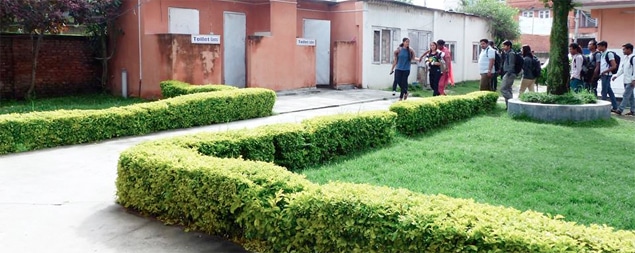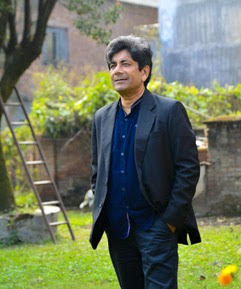Most people often criticize that the human resources that do well in the theoretical subjects in the colleges are unable to perform when it comes to working in the field. They look upon the human resources market with a question mark and distrust. Some question the colleges and their syllabi for the output without enough information.
Arun Gupto is an author and a professor. He is currently the Principal of the Institute of Advanced Communication, Education and Research (IACER), Kathmandu. Prior to this, he was an English Professor at Tribhuvan University. Gupto did his Ph.D in English Literature from Tribhuvan University. He has a double Master’s degree in English Literature from Tribhuwan University in 1984 and again from Drew University, USA in 1994. He has published numerous books, book chapters, and articles including his popular work, “Goddess of Kathmandu Valley”. And undoubtedly has had a close involvement in the progress of the education field. To know how much truth exists in the criticism about skilled human resources, we talked to him about his involvement with IACER, IACER’s contribution in the production of skilled manpower, and the overall education system in Nepal. Excerpt:
What types of human resources is the college producing? And how is the college making sure that they are qualified?
I rarely like the term “resources” when we talk about human resources in relation to education. The term limits the scope of education, particularly higher education because along with humans as capital which the term resources suggest, educational institutions prepare intellectuals as thinkers, advisers, planners who may be historians, sociologists, humanists, physicists, pedagogues, and so on.
IACER has two higher education programs and we offer courses that prepare students for further research. It gears up with the modern educational idea that for specialized research, both doctoral or other, you must have an interdisciplinary perspective. All specialization begins with an interdisciplinary vision. Our idea of qualification is related to how students gain ‘as much knowledge as possible’ in a limited semester programs about the Humanities and Social Sciences, it’s content and methodologies, so as to venture for specialized research.

Photo: Iacer.edu.np
What kind of (soft) skills do the college prioritizes for students?
If critical thinking were considered as skill or soft skill, which it is, and not entirely necessary, we prepare students to be critical scholars, logical planner, argumentative thinkers, along with developing sensitivity as cultured citizens. Generally, syllabi are designed to make students work in a ‘real-world situation’, but university syllabi are not necessarily designed to send students to fit in job markets. Fitting into the real world situation is not the sole purpose of education. It is so because we cannot comfortably define what the real-world situation is. Is it getting a job or just being a critically good, sensitive Nepali? There, however, are university programs that try to prepare students to be successful as lawyers, teachers, doctors, engineers and so on.
There is a gap in the demand and supply regarding the qualified human resources market. How is the college making sure that the manpower produce is meeting the demand?
IACER students are mostly teachers and they look for teaching jobs too. Most of our students are successful teachers but they have to look for jobs outside of Kathmandu too. Moving out provides more scopes in teaching. We try to connect with schools and colleges for job placements. We have to be professionally planning about job placements as management schools do.

How has the response been of organizations hiring the students/manpower produced from the college?
As I said, students going for teaching jobs have performed very successfully. Many opt for media jobs also. In these areas, there are many students who have been professionally successful. English graduates are successful in getting teaching jobs. It is because English education is compulsory in schools and colleges and we need teachers.
In order to better or minimize the gap, we have today in the human resources market. What kind of steps can we take to improve it? What is the college doing for the scenario?
Job placements cannot be the sole responsibility of colleges and universities. If the college aims the courses and programs at job placements too, educational planning should think about such connectivity. But neither government nor educational institutions can sit and plan in their offices unless they encourage a regular team of researchers to do extensive research in this area. I do not see such research is done in, for instance, English or Physics departments. They all focus on disciplinary research and are very departmentally oriented. But leading universities in the world focus on community-oriented researches also, even departments like Chemistry, Psychology, English, and History, etc. should have such community-oriented research. Departmental researches focus a lot on the course, though they are obviously necessary. But the idea of the university is very broad and is larger than 5-year planning.


Leave a Reply
You must be logged in to post a comment.